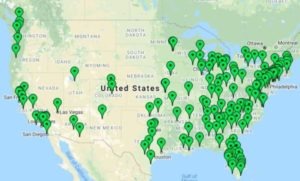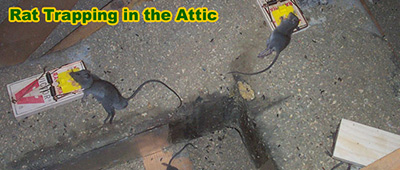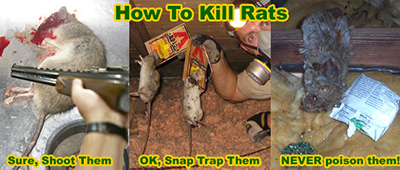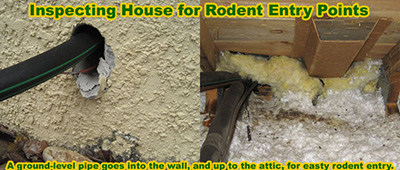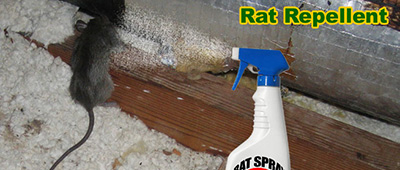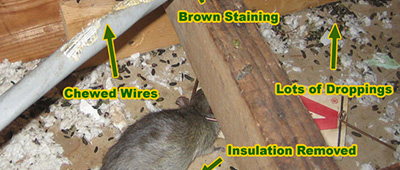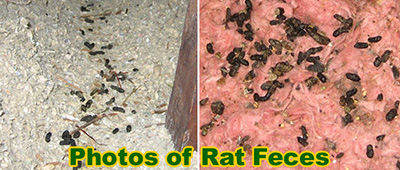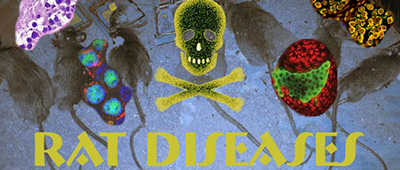If you have a rat infestation, there's a good chance you'll hear it before you see it. Rats make quite
a lot of noise, even more noise than they make mess (which is saying something), and they are also mostly nocturnal.
This means when you're getting ready to close your eyes at night, the rats will be up and about, making the most
noise. If you hear rustling or shuffling sounds at night, don't ignore them and put them down to your wild imagination.
That's a sure fire sign that you have a rat infestation on your hands. If it's not rats, it'll just be another
wild animal instead.
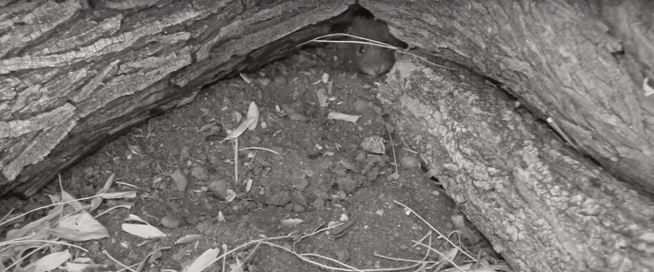
As well as scuffling and rustling sounds, you are also likely to hear gnawing and chewing noises. This is because rats chew and gnaw ALL THE TIME. They constantly do it, not only to gain access to human properties, but just because they constantly feel the need to chew. It's like when puppies chew - it's something built in that MAKES them do it. You can't help that the rat needs to do this, and neither can the rat, but there are things you can do to your home to ensure it can put up a good fight back.
There are actually calls that rats make to each other, particularly the babies to their mother, that you might hear every now and again. Things such as chattering, hissing and squeaking are often signs that the rat is in distress. A hiss or growling noise, for example, is likely to be an aggressive rat who has been cornered. A squealing or squeaking rat, on the other hand, could be a scared or injured rat, but also could be a sign that the mother is being called for by her young. They often talk to each other too. They do this a lot by way of spraying urine around, leaving pheromones behind, but they also vocally chatter to each other. They actually chatter - you may hear this noise coming from the rats, as well as teeth-chattering noises, air-puffing noises (usually from a puffed-up rat trying to insert his dominance), grunting, whistling and chirping signs. They can be very vocal when there are more than a few rats in the colony, and it is more than likely that hearing these noises will be the first indication that you have a rat problem on your hands.
Although these noises are a real pain in the backside, particularly when you are trying to sleep, they are actually your greatest tool when trying to locate the source of rats - the nest they have more than likely built up in your home. You should listen to the sound of the gnawing and chewing, and also the sound of the chattering. These noises will lead you to where the animals are, and once you have a better idea of where the little rodents are hanging out, you'll have a better idea of where to set the traps so that they will have the best effect.
Go back to the Rats in the Attic home page.
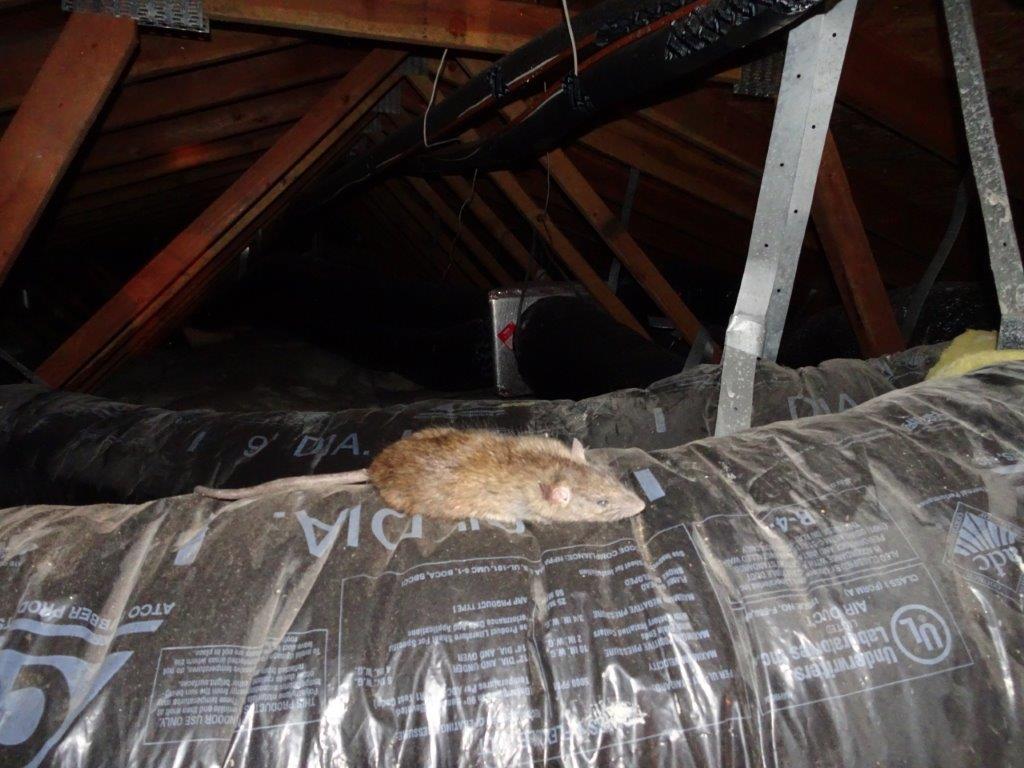
If you are the type of person to stay up late into the night then you are probably fairly used to listening to the typical sounds of your home more closely than your family members who are only up during the day.
From your furnace kicking on, to the refrigerator compressor starting up, you know your home incredibly intimately. But what if you start to hear noises that you haven’t heard before?
Quick, I want you to imagine a rat. What does it sound like? You probably imagined some type of high pitched chirping noise. This is accurate but it is only one of the noises that a rat will make. Let’s take a look at all of the different sounds you may hear from a rat.
- Scratching
- Scratching is one of the most common noises you will hear around rats. Their claws are the main tool that they use to interact with the environment around them. This noise can indicate that they are climbing, crawling, or digging.
- Gnawing
- Another common noise you will definitely hear around rats is a near-constant gnawing sound. Like many animals you are familiar with, rats also use their mouths to interact with the world.
- Scurrying
- As rodents like rats move around, they are far from silent. You will likely hear their claws tapping lightly as they scurry from place to place. They do not try to be sneaky as often as they try to move incredibly quickly.
- Squeaking
- Squeaking is the most thought of noise that people imagine rats to make. It is how rodents communicate with one another and show their emotional state. While there are definitely chirps and squeaks you will be able to hear with your own ears, research has found that rats and mice also communicate in tones well above the range of human hearing.
If you are hearing any of these noises around your home, there is a good chance that you have some kind of rodent living in your walls. Because rats and mice are nocturnal the most common time to hear these sounds is throughout the night.
Now it is important to note that while these sounds are incredibly common to be caused by rodents like mice and rats, they are not the only animal that could be making these sounds. If you are noticing the sounds to be happening throughout the day and the night then there is a fairly high chance the noises are actually being caused by squirrels. Other animals like raccoons and opossums also make similar noises but because of their size, they can sound much louder.

